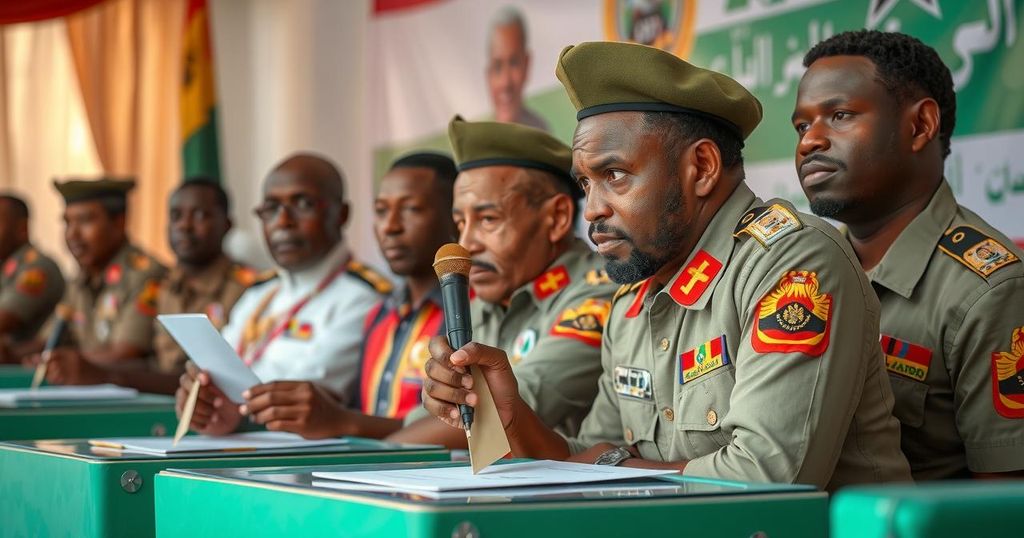Chad held a general election aimed at ending military rule after three years. Turnout was reported low at 38% amid opposition calls for a boycott. President Mahamat Idriss Deby Itno, in power since a military coup, appealed for voter participation despite widespread claims of predetermined results. Allegations of electoral fraud emerged, highlighting the ongoing struggle for Chadian democracy amidst social and economic issues.
Chad conducted a general election on Sunday, marking a significant move toward terminating military governance after three years. Voter turnout was reported to be low at approximately 38 percent, as opposition parties encouraged a boycott of the election. In various districts, voters expressed apathy, attributing their lack of participation to the decision made by opposition leaders, who claimed the election results were predetermined. This situation allowed candidates supporting the current military regime, led by President Mahamat Idriss Deby Itno, to dominate the outcomes.
President Deby, who rose to power following a military coup in 2021, urged citizens to participate in what he termed a “historic day”. Despite his pleas, many potential voters, like 28-year-old Herve Natouingan, deemed voting futile citing the absence of genuine democratic processes within the nation. Others, such as 39-year-old Patrice Lumumba Deoumoundou, expressed a desire for change, hoping to achieve employment opportunities and social justice through the election.
Election management officials claimed to have recorded significant participation among security forces, stating an impressive 72 percent turnout within military personnel and 54 percent among nomadic communities, who articulated their demand for improved living conditions. The context of this election was further complicated by ongoing violence from Boko Haram in the Lake Chad region and tensions surrounding Chad’s foreign relations, particularly with France.
The elections were overseen by international observers. However, opposition parties alleged instances of electoral fraud, including the reported disappearance of ballots intended for specific electoral districts. Chad’s current regime has framed these elections as a pivotal step toward establishing a democratic government, following the long-standing autocracy of previous leaderships.
The elections conclude a turbulent political period and highlight the complexities facing Chad in transitioning to a democracy amidst regional instability and domestic dissatisfaction.
Chad has been under military rule since the death of President Idriss Deby in April 2021. His son, Mahamat Idriss Deby Itno, took control, promising a transition to democracy but faced criticism for the lack of genuine political competition. The opposition has accused the ruling government of manipulating the electoral process to ensure favorable outcomes reflecting their interests. The backdrop of rising violence from Boko Haram and other regional challenges complicates the political landscape, as Chadians seek a new governance structure that can address significant socio-economic issues.
In summary, Chad’s recent general election is seen as a crucial point in the nation’s journey towards democracy. While the government promotes the idea of legitimate transition, widespread voter apathy and allegations of electoral malpractice suggest significant challenges ahead. The legitimacy of the elections has been called into question, and the political future of Chad remains uncertain as it grapples with internal disillusionment and external threats.
Original Source: www.hudsonvalley360.com






